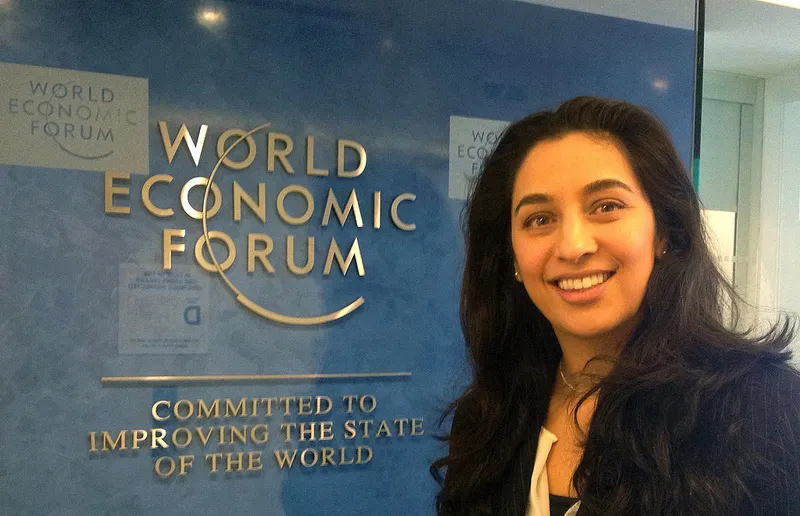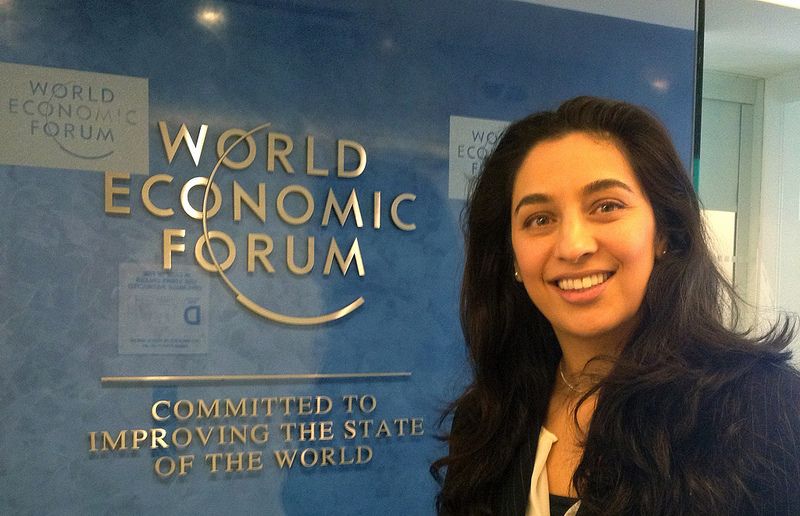Simone Ahuja: leveraging ‘jugaad’ innovation to help Fortune 500 companies
Simone Ahuja is a best-selling author, management consultant to Fortune 500 companies, and founder of Blood Orange, a marketing and strategy consultancy focused on emerging markets and innovation. Most of her management principles circling around the concept ‘jugaad’ -- an Indian innovation concept of using frugal and flexible means to get a job done -- is encapsulated in the book ‘Jugaad Innovation’, which she co-wrote with Navi Radjou and Jaideep Prabhu. Ahuja is also a Harvard Business Review (HBR) columnist and is the creator, director and producer of the television series, Indique—Big Ideas from Emerging India.
In her interaction with YourStory via email she talks about why the world needs ‘jugaad’ innovation, her baby Blood Orange and the MNCs which have benefited from deploying ‘jugaad’ innovation.

Here are edited excerpts.
YS: Tell us a bit about Blood Orange and why you started it?
SA: Blood Orange began 10 years ago as an ethnography, research and multimedia company that explored emerging economies, particularly India, in an effort to increase understanding of the Subcontinent in the West. Over time, with our expertise in emerging economies, and my work with the University of Cambridge's Judge Business School in the area of emerging markets plus innovation, we pivoted and evolved into a consultancy that helps typically large western multinationals better understand and enter into emerging economies, and create value innovations for these markets, as well as home markets.
YS: What draws you to innovation and emerging markets?
SA: Extensive research in emerging markets and examining the approach to innovation in these markets result was a rich experience that revealed many insights. In particular, field research with grassroots entrepreneurs, learning from them, and sharing their insights with a broader audience has been immensely satisfying. Helping to catalyze innovation in large western entities through the mindset and principles of "jugaad innovation" that we learned in India adds an equally interesting dimension to my work.
YS: Why does the world need low-cost ‘jugaad’ innovation?
SA: Cash-strapped consumers all over the world, including in developed economies, are demanding higher value products, services and business models. It seems like a paradox, but it can be addressed by ‘jugaad’ innovation which is a low cost, flexible and inclusive approach most common in emerging markets, and increasingly applied in the West. I discuss this at length in my TEDx talk: TEDx Talk - Scarcity Reframed is Abundance
YS: Tell us about your book ‘Jugaad Innovation’, what response have you got?
SA: ‘Jugaad Innovation’ was the culmination of ethnographic, background and academic research conducted by me and my co-authors over the last several years. It outlines the approach to innovation in emerging markets such as India, and how it's different from the approach typically used in developed economies -- almost diametrically opposed. It's really a way to help western companies understand why they have to adopt this approach to grow sustainably in an increasingly volatile, connected, global economy. In India, the book has proved to be extremely popular (over 50,000 copies have sold to date). I think there is a lot of interest in how we have re-contextualized the word 'jugaad', much the same way as the word 'hacking' has been re-contextualized, and drawn out the very best of what it means -- ingenuity and resourcefulness in problem solving despite severe resource constraints.
YS: Are there any big MNCs that have benefited from ‘jugaad’ innovation? Which companies have cracked the concept?
SA: Several MNCs across sectors have benefited from ‘jugaad’ innovation, including Renault-Nissan. CEO Carlos Ghosn is a proponent of practicing ‘jugaad’ innovation and coined the term 'frugal engineering' several years ago. We held an event with him at the Asia Society in NYC where he told us that he and his team were in India not only to capture a market, but also to learn from breakthroughs by companies like Tata Motors. Recently, we've seen companies like Philips and Ericsson leverage existing infrastructure, city street lights, to bolster cell phone coverage in European metros. This kind of flexibility, cost-efficiency and resourcefulness are hallmarks of ‘jugaad’ innovation.
YS: Has the healthcare industry adopted ‘jugaad’ innovation? Are there any examples?
SA: Healthcare companies have been some of the biggest winners of applying ‘jugaad’ innovation. From GE Health's creation of high-value, low-cost ECG (heart) monitors and V-Scan, their pocket ultrasound, both these are low cost, portable and simple in terms of design and ease of use. Dr. Devi Shetty of Narayana Hrudayalaya talked to us about the role of improvisation in surgery within a framework of deep knowledge, and resourcefulness in creating a high-value, low-cost model that makes heart surgery available to the masses. In the US, entrepreneurs like Jane Chen, Co-founder of Embrace, have leveraged the principles of ‘jugaad’ innovation to create very low cost, highly effective baby warmers. All these have found or are finding a market in developed economies as well as emerging markets. In the US, we have one of the most expensive and least effective health care systems of rich countries so innovations such as these will have a significant impact around the globe.
YS: Is there anything else you'd like to add?
SA: It's thrilling to be in a space that is filled with constant learning and passion for solving pressing social as well as industrial problems. That the direction of knowledge flow is increasingly flowing in all directions is particularly satisfying, and will lead to better solutions for citizens around the globe.
Find out more about Ahuja here, 'jugaad' innovation here, and Blood Orange here.






